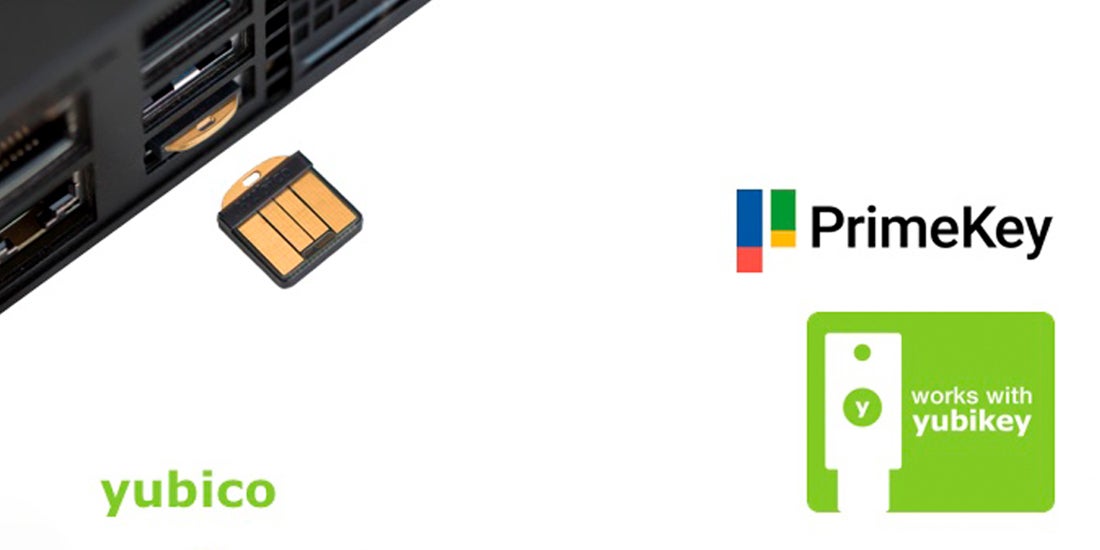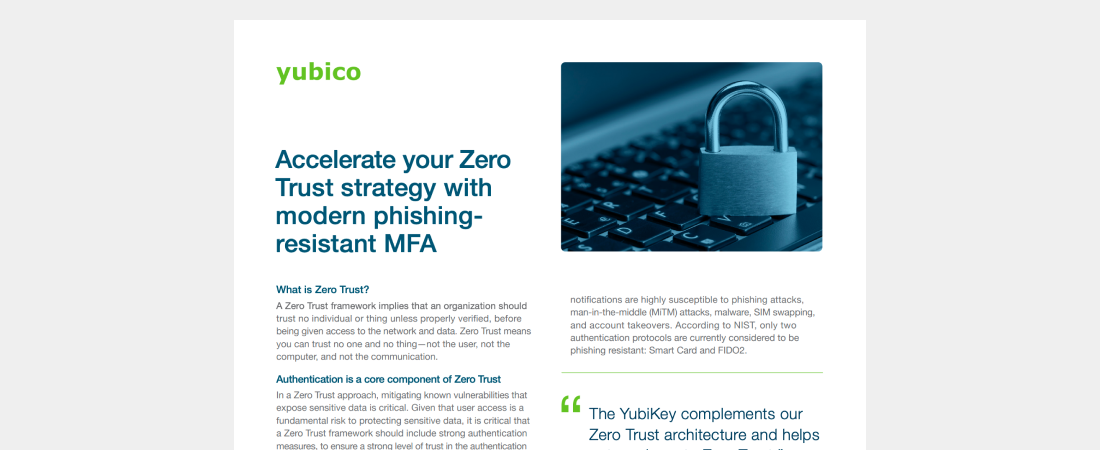The YubiHSM 2, the world’s smallest hardware security module from Yubico, is now compatible with EJBCA software for a range of public key infrastructure (PKI) use cases. Available for all YubiHSM 2.1 and newer devices, Yubico’s updated Setup Tool, which adds support for PrimeKey EJBCA, is accessible in our latest YubiHSM 2 open source software development kit (SDK).
When it comes to maintaining your customers’ trust, it’s imperative to protect against data theft and compromise, and hardware security modules (HSMs) are table stakes. Traditionally, this has meant dedicating an entire rack—or more—in the server room.
Enter the YubiHSM 2. These thumbnail-sized hardware devices deliver enhanced protection for cryptographic keys, are more affordable than traditional HSMs ($650 MSRP), require very low power, are ultra-portable, and plug into any USB-A port—minimizing space requirements for deployment. The sheer size and cost alone open up incredible new use cases. Imagine an autonomous vehicle with its own YubiHSM 2—no need to compromise on trunk space.
“The priorities for us in developing PrimeKey’s EJBCA have always been flexibility and the ability to support different use cases. With the YubiHSM 2, we enable a cost efficient and portable HSM alternative that simplifies the process to secure your CA keys,” said Chris Job, Team Leader, PrimeKey Professional Services.
With our latest YubiHSM 2 open source SDK, and support for PrimeKey EJBCA, YubiHSM 2 users can leverage PrimeKey and Yubico open source software and tools for implementing PKI. Collaborating with PrimeKey, and adding support for PrimeKey EJBCA on the YubiHSM 2 further delivers Yubico technology to organizations where open source is preferred or even required. The YubiHSM 2 now supports two certificate authorities—Microsoft Windows CA and PrimeKey EJBCA—offering greater flexibility to those looking to secure an organization’s most important data with an HSM.
Interested in learning more about YubiHSM2?
- Visit the Yubico Developer website
- Technical documentation: YubiHSM 2 for EJBCA Deployment Guide, Securing PrimeKey EJBCA with YubiHSM 2 – Now Available!
- Register to attend our technical webinar: Securing PrimeKey EJBCA with YubiHSM 2
- When: May 6, 2019 @ 3 PM CET
- Where: BrightTALK
Licensing Information
The YubiHSM 2 SDK is intended for use in development and production environments in conjunction with YubiHSM 2, pursuant to Yubico’s terms and conditions of sale and license. By downloading and installing the SDK you agree to the terms of this license. The released SDK source code is licensed under the Apache 2.0 license. Third party software included in the YubiHSM 2 SDK, and their respective licenses, are listed in the licenses directory inside the SDK package.


